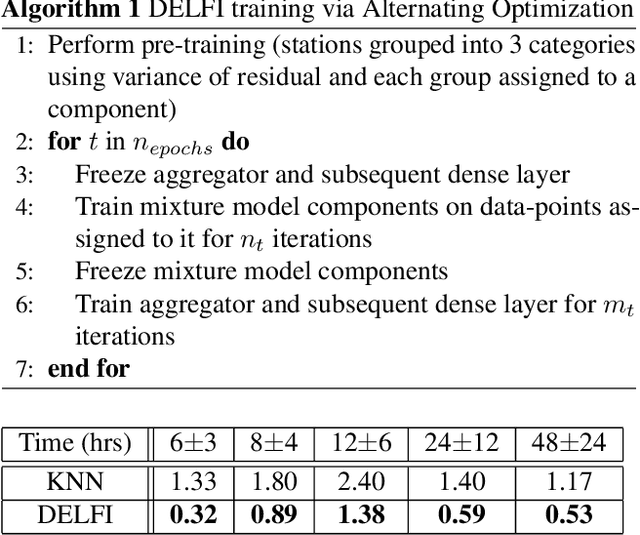DELFI: Deep Mixture Models for Long-term Air Quality Forecasting in the Delhi National Capital Region
Paper and Code
Oct 28, 2022



The identification and control of human factors in climate change is a rapidly growing concern and robust, real-time air-quality monitoring and forecasting plays a critical role in allowing effective policy formulation and implementation. This paper presents DELFI, a novel deep learning-based mixture model to make effective long-term predictions of Particulate Matter (PM) 2.5 concentrations. A key novelty in DELFI is its multi-scale approach to the forecasting problem. The observation that point predictions are more suitable in the short-term and probabilistic predictions in the long-term allows accurate predictions to be made as much as 24 hours in advance. DELFI incorporates meteorological data as well as pollutant-based features to ensure a robust model that is divided into two parts: (i) a stack of three Long Short-Term Memory (LSTM) networks that perform differential modelling of the same window of past data, and (ii) a fully-connected layer enabling attention to each of the components. Experimental evaluation based on deployment of 13 stations in the Delhi National Capital Region (Delhi-NCR) in India establishes that DELFI offers far superior predictions especially in the long-term as compared to even non-parametric baselines. The Delhi-NCR recorded the 3rd highest PM levels amongst 39 mega-cities across the world during 2011-2015 and DELFI's performance establishes it as a potential tool for effective long-term forecasting of PM levels to enable public health management and environment protection.
 Add to Chrome
Add to Chrome Add to Firefox
Add to Firefox Add to Edge
Add to Edge